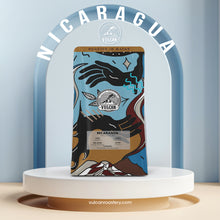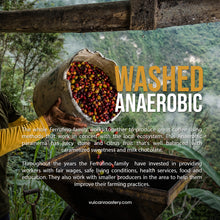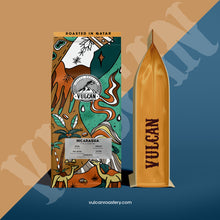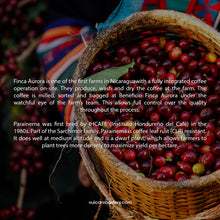
NICARAGUA - FINCA AURORA
Throughout the years, Finca Aurora has invested in providing workers with fair wages, safe living conditions, health services, food and education.
FARM: Finca Aurora
VARIETAL: Parainema
PROCESSING: Anaerobic Fermentation
ALTITUDE: 1,200 to 1,400 meters above sea level
PRODUCER: Enrique Ferrufino
REGION: Matagalpa
TASTING NOTES: Orange Blossom, Plum, Berry Candy

The whole Ferrufino family works together to produce great coffee using methods that work in concert with the local ecosystem. This Anaerobic parainema has juicy stone and citrus fruit that's well balanced with caramelized sweetness and milk chocolate.
Dr. Enrique Ferrufino, a surgeon by trade, was born and raised on a coffee farm in the mountains of Matagalpa. Together with his wife Silvia, a pediatrician, the Ferrufino family decided to go into the coffee business in 1992 and bought Finca Aurora in 2004. They inspired in their three children a love for coffee from a very early age. Since they acquired Finca Aurora, the whole family has worked together to produce great coffee.
One of the core values of the business is to inspire people through coffee. Throughout the years they have invested in providing workers with fair wages, safe living conditions, health services, food and education. They also work with smaller producers in the area to help them improve their farming practices.
CULTIVATION
Preserving nature is a top priority for the Ferrufino family. They use only renewable energy and work diligently on conserving water resources and natural
habitats. The farm houses a variety of native trees, home to many species of birds and wildlife. These trees also provide the plantation with shade and fertilize the soils with organic matter, which protects the land from erosion, droughts, and floods.

HARVEST & POST-HARVEST
Cherry is selectively handpicked and processed on the farm. Ripe, red cherry is floated to remove under ripes and damaged cherry and then pulped. Coffee is fermented anaerobically in sealed tanks for 60 hours. Employees carefully monitor pH, temperature and brix level during fermentation.
Following fermentation, parchment is washed in clean water and laid on raised beds to dry. Parchment is raked frequently to ensure even drying. It takes approximately 22 days for parchment to dry. Once dry, parchment is bagged in Ecotact and rested in the on-site warehouse for 11 weeks.
Finca Aurora is one of the first farms in Nicaragua with a fully integrated coffee operation on-site. They produce, wash and dry the coffee at the farm. The coffee is milled, sorted and bagged at Beneficio Finca Aurora under the watchful eye of the farm’s team. This allows full control over the quality throughout the process.
ABOUT PARAINEMA
Parainema was first bred by IHCAFE (Instituto Hondureño del Café) in the 1980s. Part of the Sarchimor family, Parainema is coffee leaf rust (CLR) resistant. It does well at medium altitude and is a dwarf plant, which allows farmers to plant trees more densely to maximize yield per hectare.
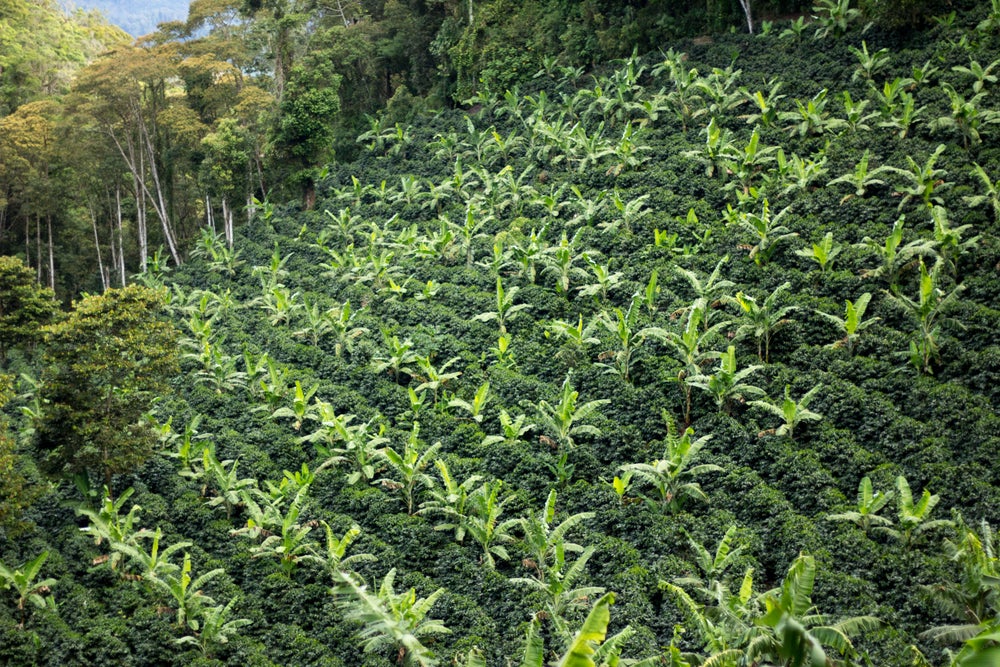
RAINFOREST ALLIANCE
RFA stands for Rainforest Alliance, a certification system that emphasizes climate-smart agriculture.
RFA farms have at least 40% of land covered in canopy, significant species diversity (at least 12 native tree species per hectare, on average) and a system of natural vegetation buffers between agricultural land and bodies of water. The farms also use organic fertilizers.
COFFEE IN NICARAGUA
Nicaragua may not be the most famous producer of Central American coffee, but it has great potential. The country is known as the land of ‘los lagos y los volcanes’ (lakes and volcanos) and has many coffee growing ‘pockets’ that few have heard of or experienced. Many producers in the country are experimenting with new varieties and processing methods, making it a specialty origin to watch.
Many coffee producers in Nicaragua today are buoyed by cooperatives that provide a wide array of services, supports and opportunity. As seen in the
win of the ‘El Acuerdo de las Tunas’, where 3,000 landless workers won land rights, collective action by farmers can be far more effective at enacting widespread change than the advocacy of individual farmers.
Cooperatives and farmer associations in Nicaragua encompass a large percentage of the country’s coffee producers, and they are taking their destiny in their own hands. By putting great emphasis on quality and by aiming for the international specialty coffee industry, cooperatives and farmers associations are helping their members gain influence and import that will, hopefully, garner enough profit to enable farmers to continue to improve and invest in their farms and their families.
Large and medium-sized (10+ hectare) farms also hold a significant place in Nicaragua’s coffee landscape, as well. Many of these farms have also prioritized social and environmental issues and are working on quality improvements at both cultivation
and post-harvest levels.
Farmers, for the most part, will process coffee on their own farms, and the majority of the time coffee is dried on large drying patios under sun.






